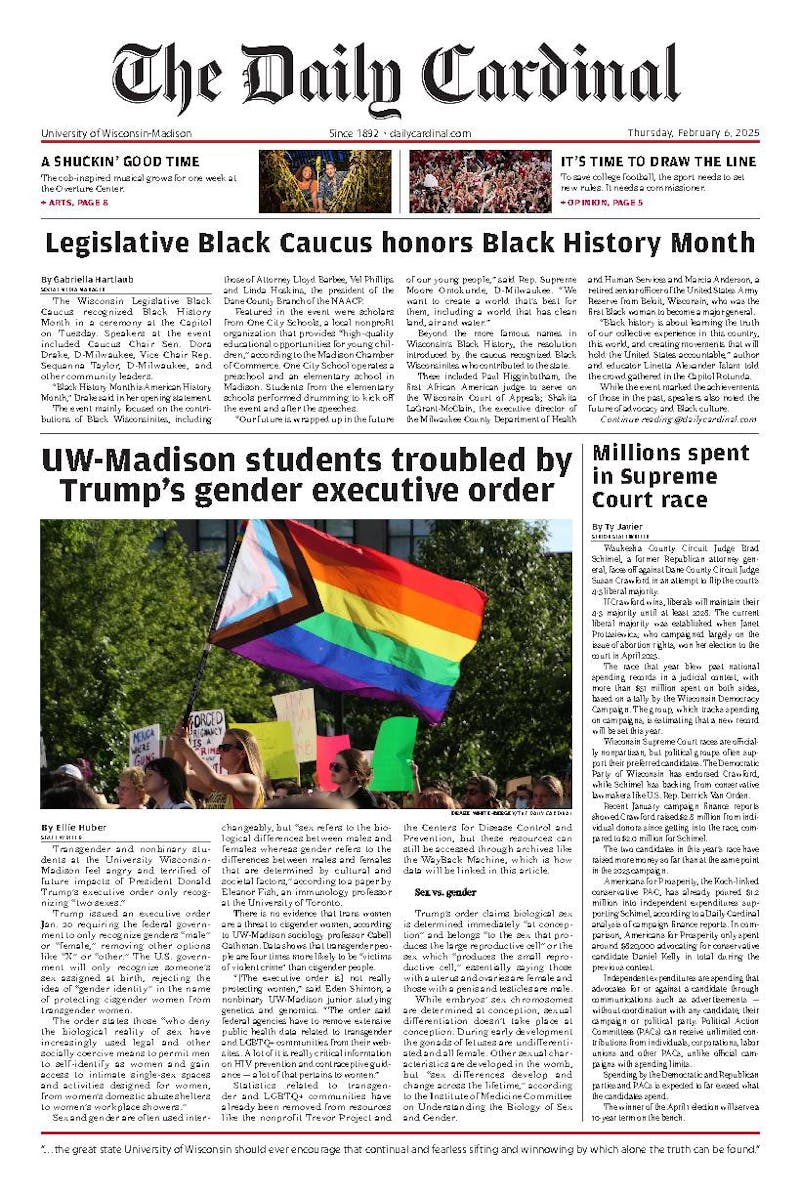They say that two heads are better than one.
But are two TV shows about powerful corporate women navigating the New York City business world better than one? That is the question raised by network television's newest set of parallel television series: ABC's Cashmere Mafia"" and NBC's ""Lipstick Jungle.""
Here are the basic facts: ""Cashmere Mafia"" follows four successful businesswomen as they navigate the New York City professional world armed with their skills and their stilettos. ""Lipstick Jungle,"" follows three successful businesswomen doing essentially the same thing. With a difference of only one smart and sexy entrepreneurial character between the two, the shows seem to have sprung from the same formula.
But all the similarities actually make sense because both ""Cashmere Mafia"" and ""Lipstick Jungle"" share the same Jimmy-Choo-clad predecessor: ""Sex and the City."" The math works something like this: Candace Bushnell, the original author of ""Sex and the City,"" and Darren Star, a producer behind the ""Sex and the City"" television incarnation, each have a hand in this latest batch of shows. Star produces ""Cashmere Mafia,"" while Bushnell plays a parallel role in producing ""Lipstick Jungle"" - which, coincidentally, is also based on yet another book by Bushnell. It seems clear that both shows were born from the same starting point, but this isn't the first time two suspiciously similar shows have appeared on television seemingly out of the blue. Not all cases are as logical as ""Cashmere Mafia"" and ""Lipstick Jungle."" Many TV show twins walk an even more precarious line between simply sharing similar concepts and blatantly ripping each other off.
Television history has a wealth of dual shows. Take the breakout hit ""Heroes"" and its lesser-known cousin, ""The 4400.""
Both shows feature people who develop superpowers under mysterious circumstances, and both also include shady agencies dedicated to finding these superpowered individuals as integral plot points. Debates are constantly raging on fan websites about whether or not one borrowed material from the other. Interestingly enough, most fans are content to let this one go and enjoy each series for its individual success.
A more well-known pair of similar shows is ""The Simpsons"" and ""Family Guy."" Two dysfunctional families, two clueless dads, and two opportunities for hilarious pop cultural satire raise more than a few eyebrows as to originality. But, as is the case with ""Heroes"" and ""The 4400






